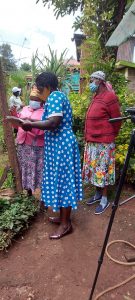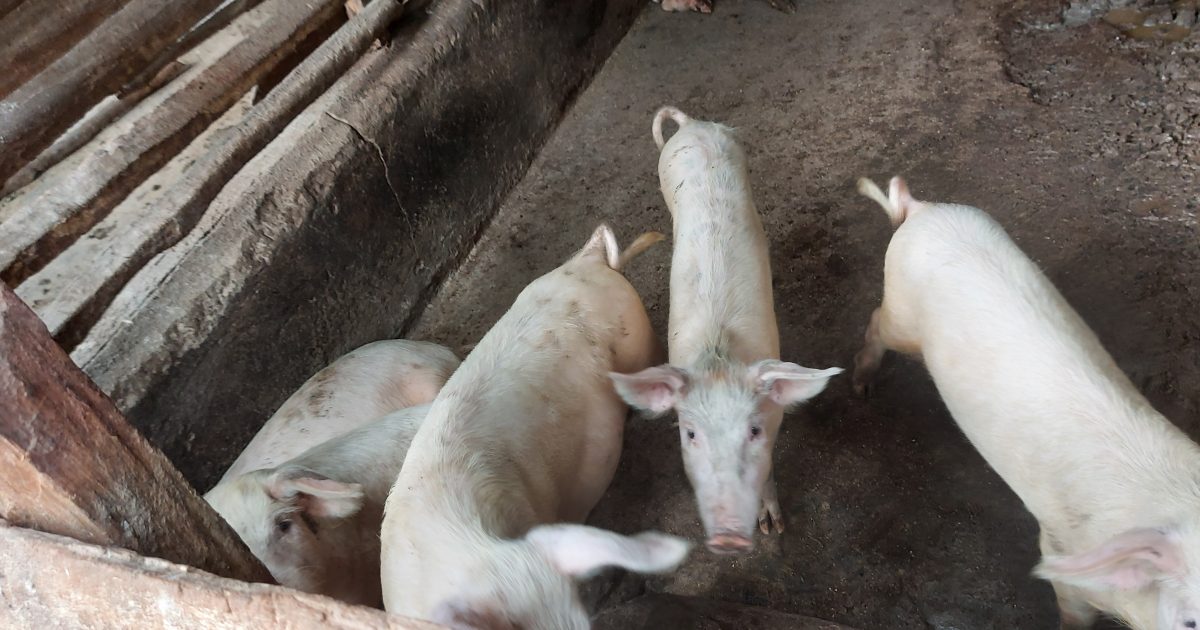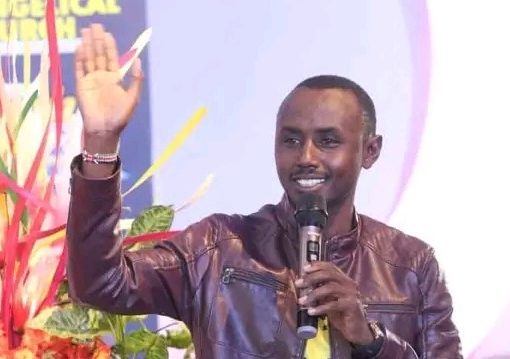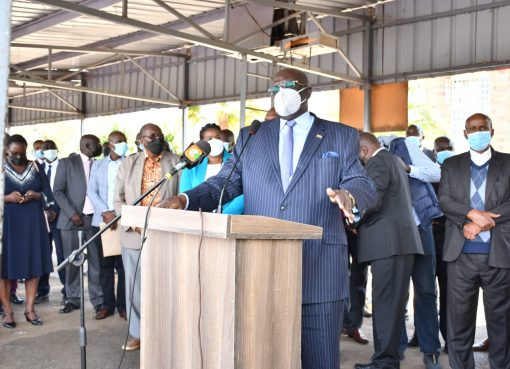At the heart of Gatundu South, approximately 48 km from the Nairobi capital, lies a little-known village of Calebu in Ngenda Ward where things have lately changed courtesy of soft spoken Assistant Chief Samuel Munene.
The career administrator has perfected his skills to empower women groups in the sleepy rural set up by offering them means to improve their livelihoods and entrenching a solid financial base in hitherto poor homesteads.
One notable beneficiary of Chief Munene’s initiative is Wariahana Women Group where the pig farming scheme has succeeded turn around the lives of women since the advent of Covid pandemic battered livelihoods.
One Rose Caleb, Treasurer of Wariahana Women Group spoke to KNA with nostalgia their success stories of how the “pig initiative” brought hope to the quite village after the wave of COVID 19 pandemic rendered families’ destitute.

She acknowledgment the contribution of chief Munene for introducing the Pig Rearing venture after the group secured only Shs 100,000 from the Uwezo Fund as a start-up capital that has grown to hundreds of thousands even after refunding the seed loan.
She says they managed to buy their first two pigs, male and female after the Chief advised that the business was worth the struggle.
Rose says that chief Munene went out of his way to donate a piece of land in his small compound on which they built a pig shed to rear the pigs as well as consistently advised them on what to feed the pigs, free of cost.
She explained that Munene having reared pigs before had enough knowledge and experience to adequately advise them on the pigs’ nutritional needs in order to maintain the same quality for the right market that would give them quality returns from a sale.
She notes that the pigs reproduced continuously and within a few months they were able to sell some pigs at a cost of Shs 200,000 and were able to buy more piglets that were still hosted at Munene’s compound and have been doing extremely well.
When the group received the second batch of Uwezo Funding to the tune of Shs 150,000, which they have since repaid, Caleb says the women decided to buy a water tank and add more piglets to continue increasing their incomes.
The water tank installed in Munene’s compound assists with the feeding of the pigs.
The group receives a further Shs 200,000 from Uwezo Fund which they are currently repaying on a monthly basis, agreeing in unison that the monies have been of immense benefits to them.
Wahiana group consists of 10 members including chief Munene’s wife and mother who were instrumental in mentoring financial independence of the women.
Rose noted that the pigs have consistently given them income with members of the group also taking home over Shs 20,000 as dividends from the revolving funds of table banking among group members.
According to Rose, their lives of group members with some elderly like Munene’s mother have changed drastically and they are able to live very decent lives.
Currently the group has over 50 pigs which they hope once mature Munene will find ready market as they multiply their fortunes

Munene says that as a government administrator he owes his allegiance to his community and is passionate about women empowerment.
He recalls nostalgically that when the Uwezo Fund was initiated he called everyone under his jurisdiction and advised all to go for the funding. The women took it seriously and applied for the loan.
The rest he says is history and the group continues to grow in leaps and bounds.
Munene says that his duty is to act as a bridge and a linkage between his community and the government and to help them identify opportunities for growth.
He concurs that when they got the money, they bought the pigs which gave birth to 12 piglets and this encouraged the women to fully plug in the business and at some point they were overwhelmed to catch up in feeding the stock forcing him to offer his farm worker to supplement their effort.
Munene asserts that the street value for pigs is quite high and the women group are able to get great value for money and in return they are able to pay school fees for their children, build their homes and improve their livelihoods.
He encourages women, youth and PLWDs to go for the various governments funding available so as to better their lives, adding that the women have also been able to buy 40 by 60 lands at a cost of Shs 750,000 through KYEOP Funding.
He says as a government administrator he steers his community in the right path and ensures that they build trust on him as well as be assured of security of their project because it is in the chief compound.
His invisible presence in the group propels them not to default on loan repayment with the group ensuring that they meet their repayment obligation in a timely manner.
According to the Food and Agriculture Organization (FAO), women make up at least 43 percent of the agricultural workforce in developing countries. Yet, women in rural and agricultural livelihoods consistently have less access than men to resources and opportunities.
As the COVID-19 pandemic attacked mercilessly, the virus disproportionately impacted women, whose care responsibilities increased as access to local markets decreased.
It’s clear that we ignore women in the food system at our own peril. The FAO reports that if women farmers had the same access to resources as male farmers, they could bring 100-150 million people out of hunger. Research from the FAO also shows time and time again that gender equality opens doors for entire communities to improve nutrition security as well as social and economic well-being.
By Alice Gworo





